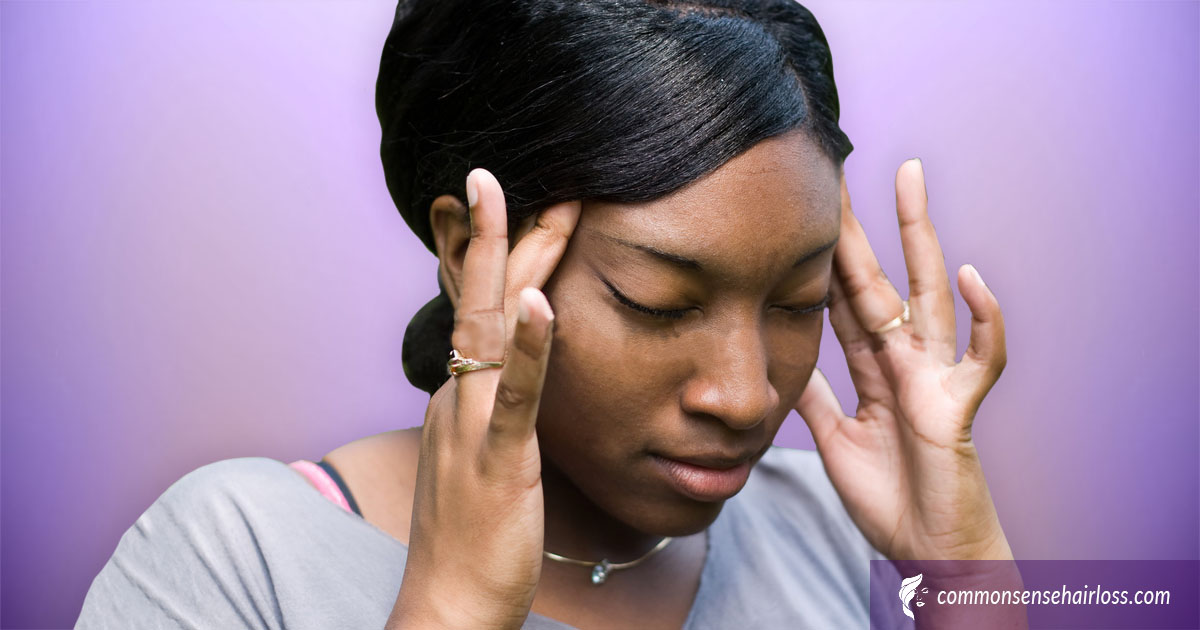In order to understand how stress can affect your scalp and hair, we first need to define what stress really is.
Stress is a reaction by an organism to a disturbing or dangerous situation. It is a state of mental or emotional strain or tension resulting from adverse or demanding circumstances. In humans and other animals, the body’s initial response to stress includes a rise in heart rate and blood pressure and a heightened state of alertness. – Collins English Dictionary
Many of us are well aware of the profound impact high levels of stress can have on both mental and physical health. But, what is less known is the damage that it can do to our scalp and hair.
It’s important to understand that hair is a non-essential tissues. As such, it is one of the most sensitive barometers to psychological and physiological health, and therefore to stress.
Nowadays, we’re all too familiar with stress. Psychological stress arises when we feel that the mental, physical or emotional pressure we are experiencing exceeds our adaptive power to the situation. In other words, we feel overwhelmed by an external factor which then causes psychological stress inside.
How Stress Can Affect Your Scalp
Due the nature of the hair growth cycle, the effects of stress will not be noticeable on your hair until 6-12 weeks later. So, people do not always connect the two events.
However, stress can impact the scalp much faster. In all cases of scalp and/or hair issues, treatment should be holistic. It should also involve using the right products and making relevant changes to diet and lifestyle. This commonly and increasingly involves targeting stress.
Scalp Stress
Dandruff – If you’re already prone to dandruff, stress commonly triggers and/or worsens flaking and itching of the scalp. This is because stress can affect hormone levels. And, in return, this may disrupt the microflora of the scalp.
Flaking can cause hair loss. And scratching can result in further irritation and even scrape the surface of your scalp. So it’s important to take care of it as soon as possible.
Using a product like Scalp Ease can alleviate the itchiness. But to keep your scalp cleansed, we recommend using Scalp Protection Shampoo to gently cleanse your scalp weekly.
Oiliness – If you are stressed, you may find that your hair roots get greasy and limp faster than usual. This is because stress can raise male hormone (androgen) levels. This in turn can increase your scalp’s production of oils.
Hair Loss
Diet – If stress disrupts your eating habits, it can impact the hair growth cycle. You may find comfort in foods with little nutritional value, or you might lose your appetite and skip meals altogether.
A balanced diet is essential to the health of your hair. So, it’s important to include all food groups into your daily routine; healthy fats, proteins, fresh fruits, vegetables, and complex carbohydrates. Protein is particularly important. It is the substance your hair is made of.
We suggest having at least a mini sized portion at breakfast and lunch. Great examples are low fat cottage cheese, fish, lean meat and fish. For vegans and vegetarians, beans, nuts, quinoa and tofu are good options.
Hair Breakage – Some women play with their hair when they are stressed. They are often not conscious of it or aware of the extent to which they are doing it. Usually, hair twiddling is harmless. But when done frequently or roughly, it may break strands and even pull them out.
If you are experiencing hair loss or scalp issues, give us a call at (619) 820-0290 or request a free consultation online.
You may also enjoy reading: Reduce Your Hair Dye Risk





